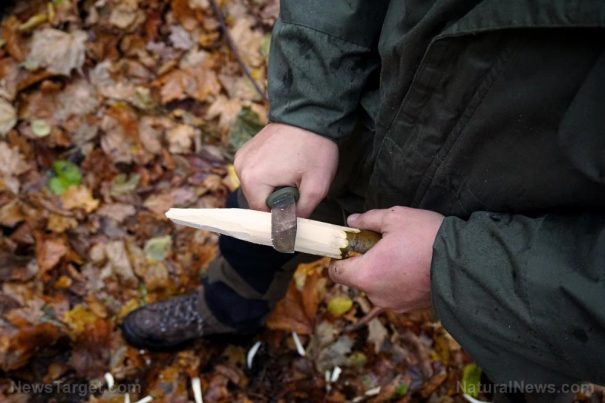Learning from an American icon: 11 Survival lessons from Daniel Boone
Tuesday, November 10, 2020 by Divina Ramirez
http://www.bugout.news/2020-11-10-survival-lessons-from-american-icon-daniel-boone.html

Modern life has become more comfortable over the past few decades. But a large part of this comfort hinges on power from an electric grid, gadgets and appliances.
However, there is no electric grid in the wild, nor are there gadgets and appliances. Therefore, it is important to have a working knowledge of basic wilderness survival skills, most of which can be traced back to pioneers like Daniel Boone, who is famous for his frontier exploits.
Never be caught unprepared when it matters most. Take note of the following survival lessons:
- Knowledge trumps survival gear – Survival gear makes it easier to stay alive, but having gear does not necessarily equate to survival. Heavily relying on gear may hurt your ability to adapt and discourage you from thinking outside the box.
- Follow rivers and streams – If you’re lost in the wild, getting back to civilization is as simple as following rivers and streams. This technique has served countless explorers well time and again. People can also survive for weeks without food as long as there is water to drink.
- Strategize when hunting – Hunting is not as simple as setting up a trap and waiting for whichever animal to get caught. For a successful hunt, know the animal well. Where does the animal like to live? What foods does it prefer? Does it have habits? Knowing the answers to these questions can make the difference between a successful hunt and a failed one.
- Cook wild meat well – Meat from butchers and groceries need to be cooked well before it can be safe to eat. That does not change with wild game meat. When cooking wild game meat, it is also better to err on the side of caution. This means cooking the meat until it is well done or until the center has browned.
- Bring a Water Pasteurization Indicator (WAPI) – A WAPI is a simple, hand-made thermometer that indicates when water has reached pasteurization temperature and is safe to drink. With a WAPI on hand, you do not have to wait until the water is boiling, only to wait again for it to cool down before you can have a drink.
- Keep a “fire pot” – Instead of going through the trouble of starting a fire again each time you make camp, save coals from your last fire and keep them in a clay pot. This “fire pot” will keep the coals hot until you need to use them again.
- Learn to read animal behavior – Wild animals will give warnings before attacking. Therefore, the secret to avoiding attacks in the wild is to know how to read those signals, which requires knowing the animal’s normal behavior as well.
- Work on marksmanship – Loud gunshots will scare away game, which is why it is important to get the first shot right. Good marksmen won’t need a second shot. But to get there, you have to spend time working on your marksmanship.
- Wear waterproof clothes – Staying dry and warm is crucial in the wild. If you stay wet and cold for too long, whether from your perspiration or from the rain, you risk suffering from hypothermia, which can lead to heart failure and, in severe cases, death. Pack waterproof clothes or clothes that dry quickly.
- Learn to adapt – Even the best-prepared survivalists need to deviate from their plans and work with what they have. In the wild, resourcefulness will greatly influence your chances of survival.
- Expect the unexpected – There are no hard rules to surviving in the wild. Explorers, preppers and survivalists will all encounter unexpected events at some point. The key to getting through them is staying vigilant and preparing for danger or difficulties.
In the wild, survival know-how can make the difference between life and death. Don’t make the mistake of being unprepared. Take note of the survival tips listed above and work on those that need practice, such as hunting and marksmanship. (Related: Tips on building pocket survival kits.)
Learn more about basic wilderness survival at Survival.news.
Sources include:
Tagged Under: Tags: disaster preparedness, prepping, SHTF, survival, wilderness survival
RECENT ARTICLES
COPYRIGHT © 2017 · BUGOUT NEWS


